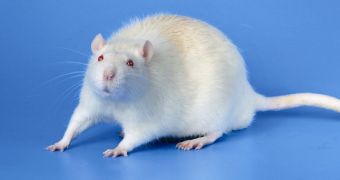Here is a piece of news some folks might want to keep in mind the next time they feel the need to go around calling other people “rats”: recent experiments indicate that these rodents are no strangers to the feeling of regret.
Simply put, it appears that they are capable to engage in and display a cognitive behavior long believed to be unique to human beings, a team of scientists argue in a recent paper in the Nature Neuroscience.
Whether this stands as proof that humans are more like rats than they think or might be willing to admit to, or that rats are more similar to humans than believed is a whole other issue.
Specialist A. David Redish with the University of Minnesota in the United States explains that, in order to determine whether or not rats experience regret, he and graduate student Adam Steiner carried out a series of experiments.
Specifically, they presented a bunch of rats with various food choices but only allowed them limited access to either of them. Much like humans, each rat appeared to favor certain foods over others, EurekAlert explains.
By pinning down these preferences and also by controlling the rodents' access to the foods they liked, the researchers were able to create scenarios in which a rat passed up a tasty treat hoping to get a better one and instead got a not-so-savory one.
Together with graduate student Adam Steiner, researcher A. David Redish kept tabs on the brain activity of the rats that they experimented on and found that, when missing the chance to feast on something they liked, the rodents showed regret.
“In humans, a part of the brain called the orbitofrontal cortex is active during regret. We found in rats that recognized they had made a mistake, indicators in the orbitofrontal cortex represented the missed opportunity,” the specialist explains.
“Interestingly, the rat's orbitofrontal cortex represented what the rat should have done, not the missed reward. This makes sense because you don't regret the thing you didn't get, you regret the thing you didn't do,” he adds.
For the purpose of this research project at the University of Minnesota Medical School, regret was defined as being aware of the fact that one has made a mistake and that acting differently in a given situation would have yielded better and more pleasant results.
“Regret is the recognition that you made a mistake, that if you had done something else, you would have been better off. The difficult part of this study was separating regret from disappointment, which is when things aren't as good as you would have hoped,” A. David Redish stresses.

 14 DAY TRIAL //
14 DAY TRIAL //